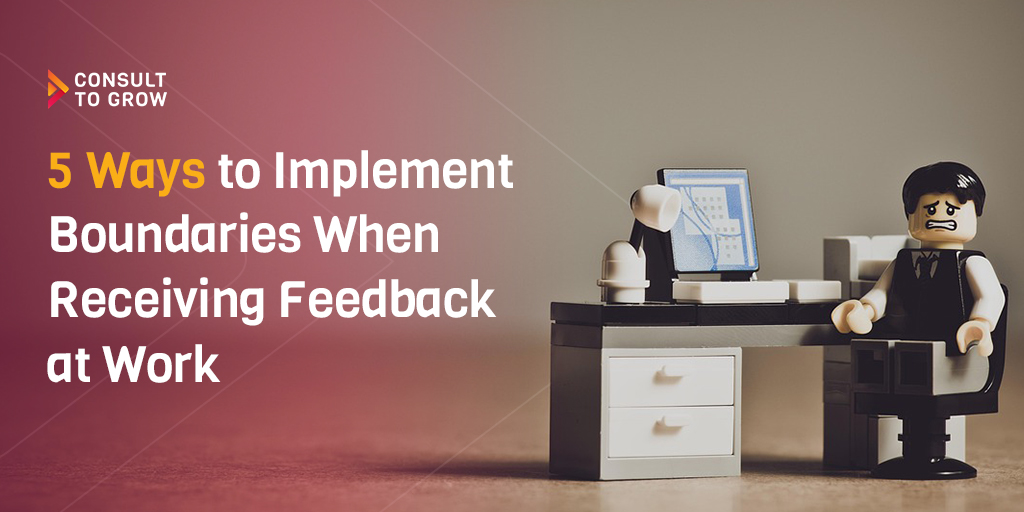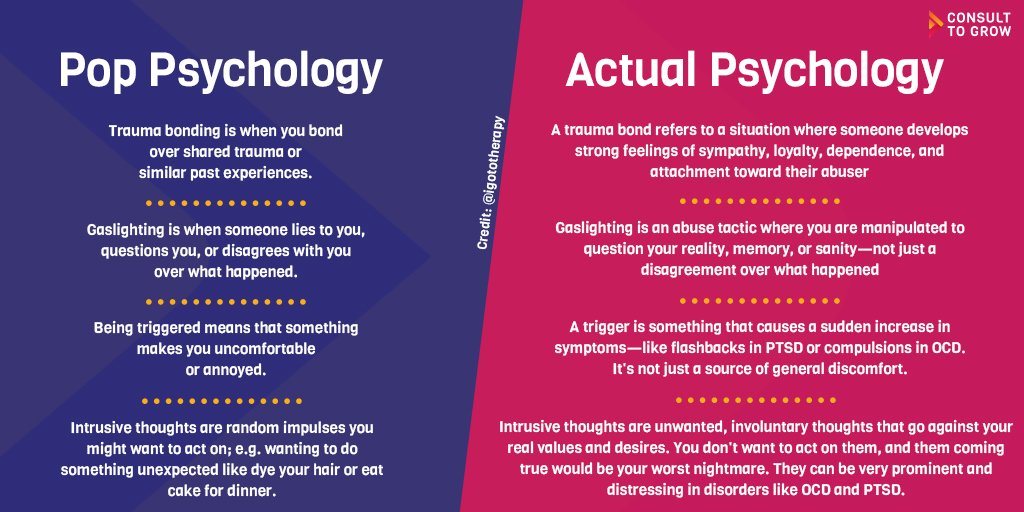
Part of leveling up at work is implementing feedback to better your performance. But receiving feedback is tricky for multiple reasons. Even when we solicit a report on what we’re doing well and where we can improve, our natural hormonal response can get in the way of positive reception and retention: the stress hormone, cortisol, is dumped into our system when feedback is offered. Our body perceives feedback as a threat in the most primal sense. The physical followup is to release adrenaline, triggering our fight or flight response and ending our ability to rationally receive the feedback we asked for or were offered. What this means down the road is that instead of implementing feedback, we might come away with a sense of having been attacked. In short, security and trust were lost in the feedback session.
Professionalism Is All about Boundaries
While this scenario isn’t always the case, pop culture has done a number on our ability to give and receive feedback in meaningful ways. The high prevalence of diagnostic language that comes from elevated emotional and mental health discourse (largely popularized through social media) has made its way into the workplace, but without the professional trappings. This creates more harm than good. Why? Because professionalism isn’t about stoicism; it’s about boundaries.
And this is very, very good news. Why?
Boundaries are the heart of every positive mental health narrative. Whether that narrative came from Tik Tok or your psychologist with 25 years practicing and 32 peer-reviewed publications. Boundaries are what allow you to remain in control of your experience.
5 Boundaries to Implement When Receiving Feedback at Work
The following tips are valuable for positive, neutral and constructive feedback. A note here: be sure to put the positives to paper. It’s easy to fixate on what’s “wrong” and forget what you are doing well. A good review will include your successes, so hold onto those and see if you can make your growth areas reflect that energy.
- Request feedback when you have questions or concerns. Did you implement a new procedure or onboard a new hire, and you aren’t sure it went as intended? Pull your supervisor aside and request to talk it through. This shows that you are invested in doing well, that you recognize potential opportunities for growth, and it puts you a step ahead for the feedback session by initiating minimal threat response in your brain as well as that of the person providing the feedback.
- Request an advocate or witness be present to your review. This is a useful ask if you are keyed up. Again, the hormones cortisol and adrenaline are likely to make you forget what you are hearing. Having a trusted team member present for your review can act as a buffer and provide you with a friend to take notes or remember on your behalf.
- During your review, clarify what you are hearing through reflective listening. Often enough, the heart of meaning is lost through miscommunication. By asking, “Is it okay if I clarify? Am I hearing you say…?” you can course-correct before you’re lost in the weeds. Knowing what someone means is different than knowing what someone is saying. Don’t be afraid to ask if you are hearing what they meant to say.*
- Request that you be able to take your own notes on your review and have them signed off on by your superior. This can be paired with the previous tip as a followup: “Okay, I’m going to write that down.” Most reviews will come with a writeup from your reviewer, but if this is a meeting you pulled your supervisor aside for, or if you want to compare notes, this is still a great tactic. You can always request your supervisor update their notes before you sign off on anything.
- Request examples of any behavior being cited. This is a great way to track positive feedback as well as pinpoint where you can make meaningful changes in your work.
*Here, I’ll add that reflective listening is an amazing tool for getting out of your own head. If you are prone to overthinking, focusing instead on accurately reading what your supervisor is trying to communicate to you can stop you from cycling self-defeating thoughts. Yes, it’s possible your supervisor is a deeply unpleasant person who takes little to no responsibility for what happens day to day in the business. However, when that’s the case, it’s just as likely you can benefit from a) the boundaries above when dealing with them and b) the boundary of forcing them to confront what they are saying about you and how by reflecting it back to them neutrally. Download this comprehensive guide (useful for work and life) by Neil Katz and Kevin McNulty to learn and practice reflective listening.

A Note about the Hazards of Pop Culture Boundaries
Like AI Psychosis, not all uses of new technology are beneficial. This includes some of the ways information is disseminated via social media. Anyone and everyone can talk about their mental health journey, and that has proven to be inclusive and beneficial in many senses. However, this has also led to incorrect or even intentionally false narratives that become widely shared and harm the discourse. Some examples of the way mental health discourse has been negatively altered is the popular versus scientific definitions of common pyschological terms.
A big one is the idea that someone saying they had a different experience from you means they are gaslighting you. That’s false. As humans, we all experiences the same scenarios differently. We are actually incapable of experiencing them identically for numerous reasons. The idea that our presets of nature, nurture and whatever was happening internal to us in the given moment of said experience (physical or emotional pain, distraction, etc.) wouldn’t vary our experiences is unfair. And claiming someone is using an intentionally abusive technique of denying our lived experience in order to force us to question our own sanity instead of just, you know, existing separately from us, if even more unfair.
Yet it’s become commonplace to accuse others of abusive or violent behavior through weaponized psychological terminology. It’s unclear where the line is being drawn. The note here is for you to be clear on what the terms you are using mean so you can be clear on what you are saying. If someone is abusive or violent, call them on it. Report it. Take action. Just don’t demonize someone as such if it’s not truly warranted.
Conclusion
You’re more likely to implement feedback you retain, and you’re most likely to retain feedback you receive with good boundaries. Determining what boundaries best serve you in your workplace and with your supervisor may take some trial and error. We’ve offered five options for getting started as well as some help differentiating between pop and actual psychology–essential for implementing true boundaries that will support your wellbeing in the workplace.




